The Rise of the French Bulldog as a Family Icon
In this article, we’ll learn about the personality and unique characteristics of the affectionate French Bulldog . This dog has a cheerful and affectionate personality that loves cuddles. The French Bulldog also stands out for its unique physical characteristics. This little dog has everything to melt any dog lover’s heart.
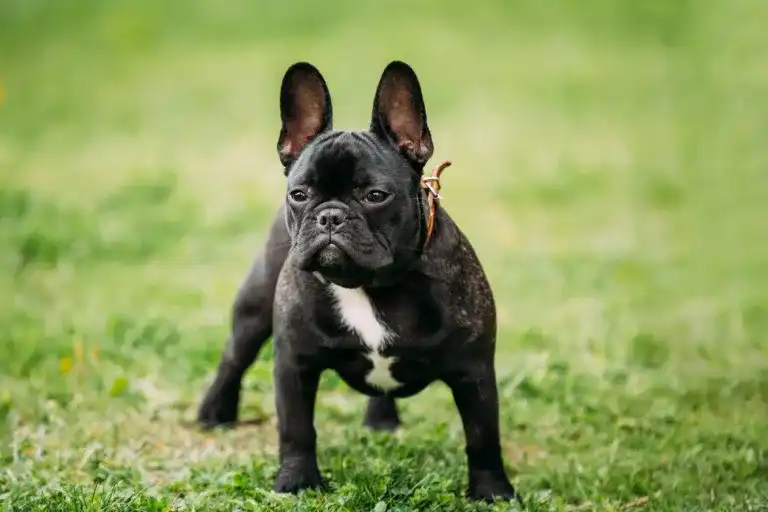
French Bulldog Appearance
A dog full of energy
With a small, plump body, the French Bulldog appears to be a muscular and compact dog. They stand about 30 cm tall at the withers, and weigh between 8 and 14 kg. However, a distinguishing feature of this breed is their erect bat-like ears, angular head, and short muzzle and tail. Their coat is smooth and without an undercoat, and according to official standards, the coat can be of various shades. Thus, we find French Bulldogs with shades ranging from black to white, including fawn and brindle with or without white markings.

History
French Bulldog: A Recent Breed with Ancient Roots
The ancestors of the French Bulldog
The French Bulldog belongs to the Molosser family. This family also includes the Pug, the Dogue de Bordeaux or French Mastiff, and the English Mastiff. Dogs of the Dogue type are the ancestors of this breed. However, the development of the French Bulldog breed only began in the second half of the 19th century, making it a fairly recent breed. Furthermore, experts disagree on the breeds that gave rise to the French Bulldog. It is thought that one of the breed’s direct ancestors is the small English Bulldog that English weavers took with them when they traveled to Normandy.
The English Bulldog was bred for dogfighting and bullfighting. In fact, the origin of its name is related to this practice— bull means bull in English. After this terrible practice was banned, the breeding of all Great Dane breeds changed. From then on, these corpulent dogs became primarily companion animals.
French Bulldog: A Popular Breed
It is believed that French Bulldogs were initially crossed with Terriers. These crosses were likely carried out by hunters, but for a short period of time. Crosses with Pugs also occurred. In 1880, the first French Bulldog club was established in Paris. However, when some French Bulldogs were brought to the United Kingdom, they were classified as English Bulldogs, as there were no standards to define the French breed. French Bulldog standards were established in 1888. The recognized patriarch of the breed is the famous male Loupi, who is mentioned in almost every book on the breed’s genealogy.
It was primarily in Paris that this breed received special attention. The French Bulldog became very popular among dog lovers who couldn’t afford more expensive breeds. However, the French Bulldog’s unusual appearance and friendliness won over European nobility.
French Bulldogs also enjoyed a peak in popularity in the United States at the turn of the 19th and 20th centuries. Americans nicknamed these dogs batpigs (bat means bat and pig means pig) because of their appearance. Today, these charming French Bulldogs are known worldwide. Some celebrities, such as actor Hugh Jackman, have adopted two French Bulldogs. Dali and Peaches are famous on social media, as Jackman posts countless photos depicting the versatility of the French Bulldogs that accompany him in his daily life. Another celebrity who was captivated by these special dogs was Madonna. Her French Bulldog is named Gypsy Rosa Lee.
Personality
French Bulldogs are naturally happy and easygoing. They are also intelligent, affectionate, love long cuddle sessions, and are easy to train. They also prefer short walks and bark little. These characteristics are due to the breathing difficulties they have due to their anatomy. The French Bulldog loves to play and generally gets along well with other dogs and children. Finally, this breed has no hunting instinct and therefore lives in harmony with cats. Thus, their friendly and affectionate personality and small size make this breed one of the most popular among city dog lovers.
French Bulldog Education
Like all Great Dane dogs, the French Bulldog needs a firm leader. However, training one of these dogs is very easy. You just need to be consistent in your training and not be fooled by their charm. For example, if you don’t want your dog to sleep in your bed, get them used to it from a young age. As an adult, it will be difficult to convince them that your bed isn’t theirs. Furthermore, training French Bulldogs should be reduced, as this breed’s attention span is short. However, with short exercises and positive reinforcement, your French Bulldog will easily learn basic commands. A dog school can be a very beneficial alternative for your dog’s education and socialization.
Health
The problems of popular dogs
Despite their easygoing personality, French Bulldogs do have some health issues that require attention. First, you should avoid buying your dog from breeders who favor small skulls. Dogs with small skulls, or brachycephaly, tend to suffer from respiratory problems and snoring. Remember that a snoring puppy can be quite amusing. However, constant snoring in an adult dog can become a problem. Some French Bulldogs may also have a congenital eye problem known as cherry eye. This problem usually occurs in young dogs and may require minor surgery.
Furthermore, these dogs don’t like heat. Therefore, in the hottest months of the year, it’s advisable to take walks early in the morning or late in the afternoon. During the summer, it’s very important that your French Bulldog has a cool, shaded place to rest. You should also protect him from drafts, as his eyes are very sensitive to dust. Finally, given the anatomical characteristics of this breed, French Bulldogs rarely give birth naturally because the puppies’ heads can’t fit through the pelvis. Dogs of this breed live between 9 and 11 years.
French Bulldog Feeding
French Bulldogs are prone to being overweight. Naturally, you should avoid this problem. Additionally, some of these dogs also have sensitive stomachs and/or flatulence. Therefore, it’s crucial to find the right food for your furry friend. Once you’ve identified the right food, you should stop experimenting, including with treats and snacks.
The food that best suits the vast majority of dogs has a high meat content, regardless of whether it is dry food. or wet food. Therefore, you should choose foods where meat appears first in the ingredient list. French Bulldog food should be grain-free, as grains can cause stomach upset. While growing, these dogs need up to four meals a day. Adults, on the other hand, do well with two meals a day. French Bulldogs should take a walk before their meal and rest afterward.
A responsible breeder will tell you what food your new friend is used to. You should maintain this diet for a while to help them adapt to their new home. However, if you decide to change their diet later, do so gradually. The best method is to gradually add new food to their usual diet. This will prevent upsetting their sensitive stomach.
For oral hygiene you can choose snacks You can find it in pet stores for this purpose. You can also give your pet dehydrated cow’s ears or raw beef sticks. Please note: you should never give your pet pork products. Finally, your pet should have fresh water available at all times.
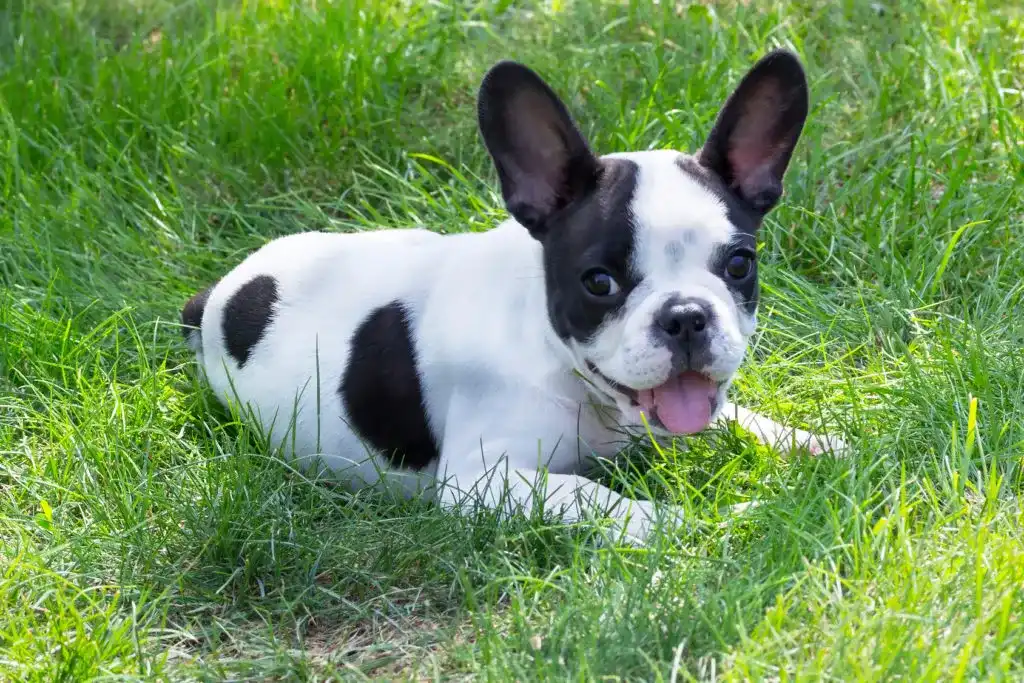
Hair care
Good news: the French Bulldog’s short coat doesn’t require much care. You should only bathe him when he’s very dirty. Choose a gentle shampoo. You can find it in pet stores. Some dogs of this breed have several folds on their muzzles. To prevent skin inflammation, it’s important to clean these folds regularly with a damp towel. Finally, check your dog’s ears daily and clean them as needed. You can use ear lotion to do this. which you can also find in specialty stores.
Living with a French Bulldog
Having company is everything!
The French Bulldog loves walks, but please don’t go too fast during hot weather. Also, don’t walk too fast, as this can exhaust them. These short-legged dogs aren’t exactly athletic. Many French Bulldogs suffer from chronic shortness of breath due to their skull shape and short snout. As a result, these dogs breathe more rapidly than would be desirable. French Bulldogs are not working dogs and therefore aren’t prone to destroying your home if they get bored.
However, this doesn’t mean they don’t need daily walks. Therefore, it’s important to keep your little Bulldog entertained. You can play tricks with him that don’t require much physical effort but that stimulate his intelligence. The French Bulldog also enjoys the company of other dogs to play with. Furthermore, these dogs love cuddles. They also love spending the afternoon relaxing with you, as long as you’ve given them enough attention.
The profile of a French Bulldog owner
French Bulldogs are great companions for any owner who doesn’t want to play sports with their dog. Being very calm and affectionate, French Bulldogs get along very well with children. Therefore, this breed is suitable for families with or without children, as well as for people without much experience with dogs. Likewise, older people who enjoy the company of a small dog find the French Bulldog an excellent option. It’s also a suitable dog for families with other pets, as the French Bulldog lacks a hunting instinct and readily accepts the company of other animals.
If the French Bulldog is going to be part of a family with children, it’s important to explain to the little ones that their furry friend needs rest. As long as the children follow simple rules, the little French Bulldog will be an inseparable friend for life. The French Bulldog also lives happily in a city apartment. However, he shouldn’t have to climb stairs regularly because of his short legs.
Before deciding to bring a French Bulldog home, make sure no one in the family is allergic to fur. Also, find out about the fees you’ll have to pay and plan your future vacations. This is important because these dogs don’t like to go to very hot places. So, depending on your vacation destination, look for a dog-friendly hotel or choose a dog-friendly hotel near your hometown.
What you should have at home for your French Bulldog
The basic equipment for the French Bulldog includes a food and water bowl., a bed, a transport box, toys and of course the collar and leash. However, for French Bulldogs a harness is the most appropriate choice. Regarding food, a dry food with high nutritional value is the best option. It’s also important to have an annual visit to the vet, even if you don’t notice any health problems.
How to find the desired French Bulldog?
The market rule also applies to French Bulldogs: demand determines quality and price. Since these dogs have become extraordinarily popular, it’s crucial to be careful about the breeder you choose. Nowadays, many people breed French Bulldogs to make easy money without paying any attention to their needs. Look for a reputable breeder who will answer all your questions without hesitation.
Furthermore, a responsible breeder is a member of an association and has certified documents for their puppies, including vaccination records. Puppies from a reputable breeder also receive veterinary care and are dewormed. You should never choose a breeder whose documents are not in order. A reputable breeder is the best guarantee you can have that your little one is unlikely to have genetic diseases.
You can usually visit your future companion at the breeder’s home a few times and meet their parents. Take advantage of these visits to ensure that the breeder focuses on a single breed and that the mother dog has enough time to recover before having another litter. Never choose a puppy from a breeder whose dogs have several litters per year.
A reputable breeder is knowledgeable about the breed and its characteristics. Therefore, they will have no problem providing you with information on the steps you should take to prevent your French Bulldog from developing health problems. If the breeder asks you a lot of questions, take this as a good sign. A breeder who truly cares about the future of their puppies wants to ensure they go to a good home.

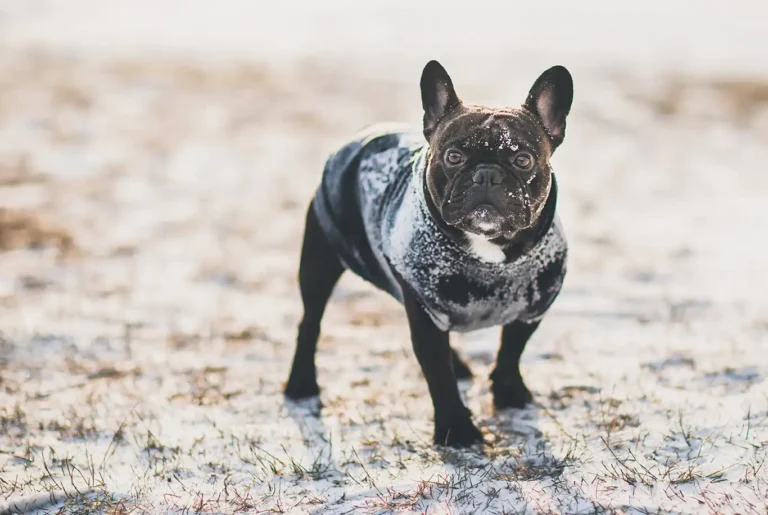
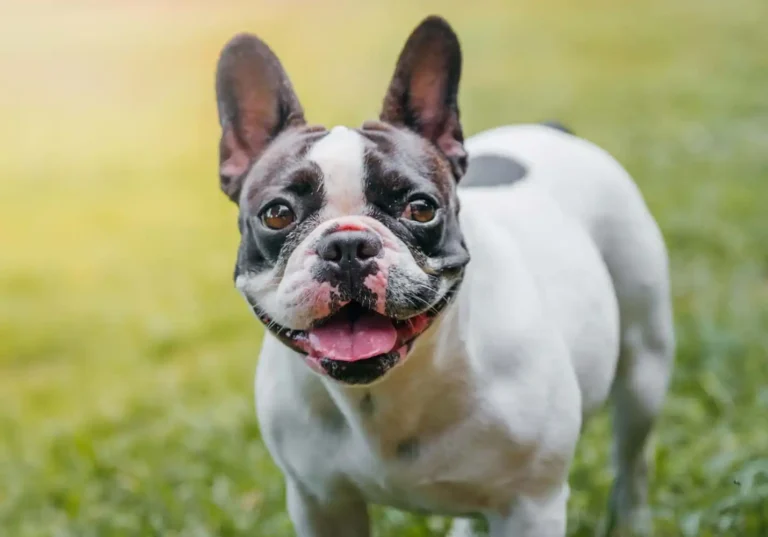
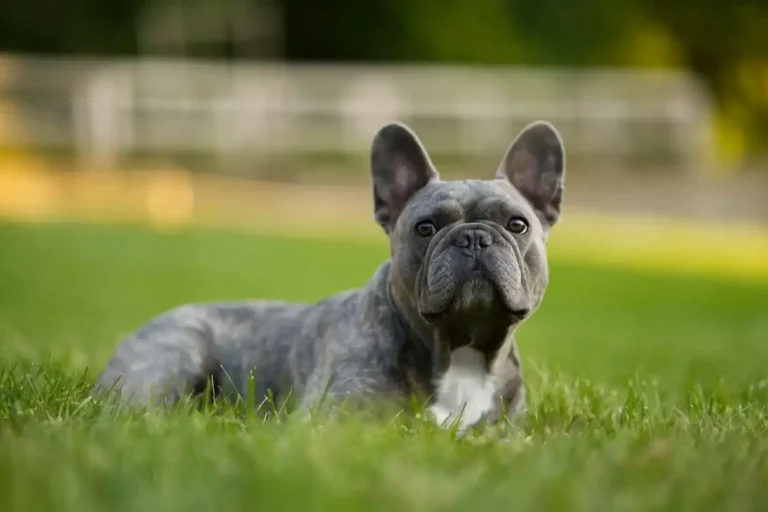

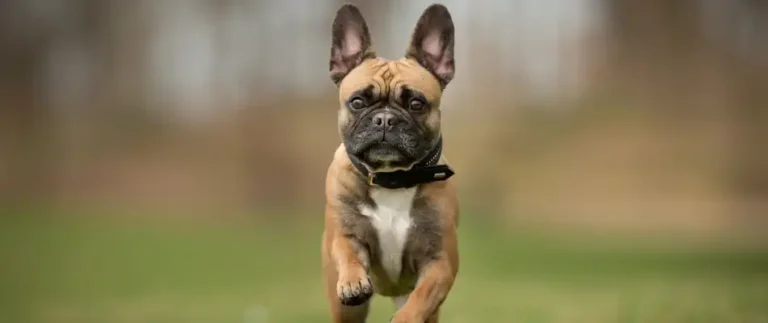
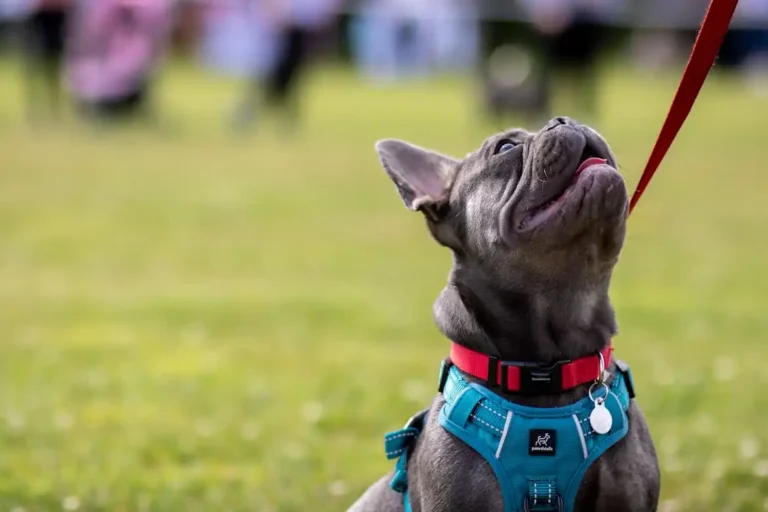
One Comment